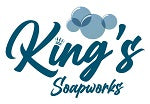Chronicles of Soap Detergents | History of Soap Making
Soap has been used for thousands of years for cleaning and personal hygiene, but its origins can be traced back to ancient Mesopotamia. The earliest evidence of soap-like materials dates back to around 2800 BCE in ancient Sumer, where a mixture of water, alkali, and cassia oil was used to clean wool and cotton. This early soap was made by boiling ashes and fats together, a process known as saponification.
The ancient Egyptians also used a similar mixture for cleaning, as well as for medicinal purposes. The Ebers Papyrus, an Egyptian medical text from around 1550 BCE, describes the use of a soap-like substance for treating skin diseases.
The ancient Romans also had a sophisticated understanding of soap-making. They made soap from tallow (rendered animal fat) and ashes, and used it for both personal hygiene and laundry. The Roman poet, Ovid, even wrote a poem about soap in the 1st century CE.
Soap was not widely used in Europe until the Middle Ages, when it became more common for personal hygiene. However, it was still a luxury item that was often very expensive. In fact, in medieval Europe, soap was so expensive that it was often used only by the wealthy.
Soap-making technology improved during the Industrial Revolution, and by the 19th century, soap was being mass-produced and was more widely available and affordable. Today, soap is an everyday item that is used by people all over the world.
The benefits of soap are many. Soap is an effective cleaning agent because it can break down and remove dirt, oil, and bacteria from the skin. It also helps to moisturize the skin, as it can help to remove the natural oils from the skin, leaving it feeling soft and smooth.
Using soap can also help to prevent the spread of germs and diseases. Soap can break down and remove harmful microorganisms from the skin, which can help to reduce the risk of infection.
Soap can also be beneficial for people with certain skin conditions, such as eczema and psoriasis. Some soaps are formulated with ingredients that can help to soothe and calm irritated skin.
In conclusion, soap has a long and fascinating history that spans thousands of years. From ancient Sumer to the Industrial Revolution, soap has been an important tool for personal hygiene. Today, soap is widely used and appreciated for its cleaning and moisturizing properties, as well as its ability to prevent the spread of germs and diseases.
